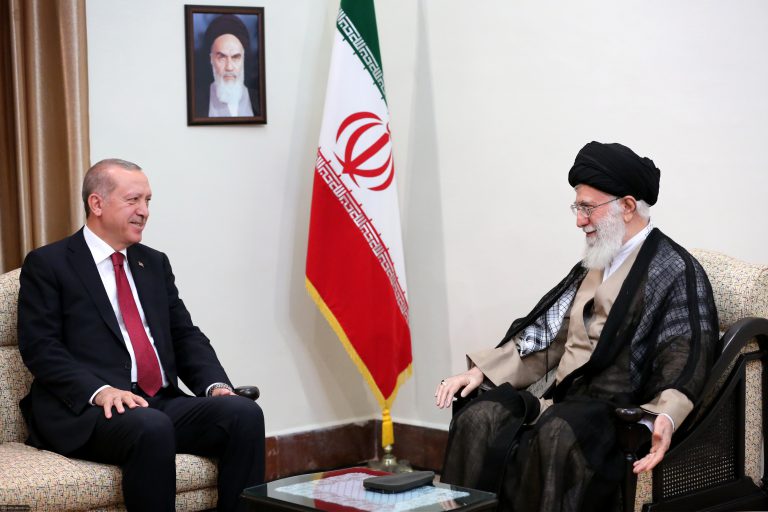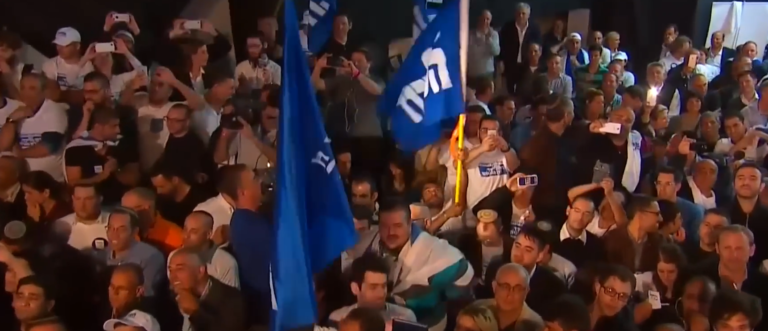If Israelis had heard how the President of the United States spoke about the hostages, it’s doubtful that he would have received such thunderous cheers at Hostages’ Square last Saturday night. To say they were a secondary concern for him would be an understatement — and even that understates it. Donald Trump favored eliminating Hamas the American way, and 20 living hostages (he was always confused about their number and minimized it — I wonder what Sigmund Freud would have said) seemed to him a marginal matter, collateral damage.
Only belatedly did he perceive how strategic the issue was for the Israelis, and therefore for their government as well. In the United States, presidents have usually not been criticized for meeting hostages’ families too little, but for doing so too often (for details, Google “Ronald Reagan”).
In one of the discussions before Operation Gideon’s Chariots B began, Benjamin Netanyahu spoke about the scar that would remain in Israeli society if the IDF conquered Gaza City at the cost of the hostages’ lives. Allow me to guess that he never really believed that moment would come.
Indeed, in recent months, Netanyahu and Ron Dermer’s assessment was that an operation to conquer Gaza City, if it happens, may well begin, but most certainly would not reach completion. Here is the inside story.
Following the successful war in Iran, Israel tried to use the momentum to reach a partial deal in Gaza. The idea was to release half the hostages and, during a 60-day ceasefire, arrive more or less at the conditions achieved this week. But Hamas, inspired by a Gaza starvation campaign that was gaining international traction, refused. President Trump, still in the shadow of Israel’s victory in Iran, thought the IDF could eliminate the remnants of Hamas as quickly as it smashed Tehran’s nuclear program. Ultimately, the combination of Hamas’ refusal and the president’s ambition led Israel to decide to enter Gaza City.
The idea was proposed by former Shin Bet chief and current Minister Avi Dichter: conquering the city is the end of Hamas, he said at one meeting. The magic happened almost immediately: “Even before our forces entered the city,” Dermer recounted, “three days of talk about the operation did what three months of negotiations failed to do. Hamas suddenly agreed to a partial deal. But by then time had already run out.”
Israel faced two options: one, to conquer the remainder of the strip and establish a military government with American support. Dermer and Netanyahu, however, believed that would require national unity and backing from Trump. The first component did not exist, and the second was highly unlikely.
The second option was a plan manufactured by Israel, led by the Americans, and supported by Arab states. President Reagan once told his people: you’ll write the plans, and I’ll be the presenter who markets them. This plan was no different, with Dermer filling the role of the writer. It was clear that any plan presented as purely Israeli would be pronounced dead before it was even born. That doesn’t mean every tweet was coordinated, Dermer said at a cabinet meeting this week, but on the big matters, Jerusalem and Washington moved together.
Thus began arduous negotiations with Middle Eastern countries. During a round of talks in New York, it seemed impossible to get all those elephants into the same private room. Nevertheless, Israel’s representatives returned from there with 17 substantive comments from the Sunni states and even an agreement in the offing.
Then came September 9. Early in the morning, a three-person phone call was held about the impending strike: Prime Minister Netanyahu, Defense Minister Katz, and Minister Dermer. All three supported the attack. Many issues came up in the consultation, but one particular issue did not: none of them believed there was an Israeli commitment to the Qataris not to strike Hamas personnel on their soil. Netanyahu called President Trump minutes earlier, but the president was groggy after a late night of discussions. It took time to reach him. The strike went ahead.
So far, it’s unclear how senior Hamas figures escaped the attack, but it’s obvious that it brought the deal closer. I recently wrote that it was the most successful failed assassination in history, in the sense that it signaled to the Qataris that the war would come to them if they did not stop their double game.
Dermer sees it differently. He links the strike to the agreement, but in a completely different way. The Qataris, it turns out, were convinced that by agreeing to host hostage release negotiations, they had obtained immunity from Israeli strikes on their soil. From their perspective, the strike was a blatant, offensive breach of that commitment.
Qatar hadn’t managed to help forge a deal for quite some time, but it’s not half bad at thwarting them. In Jerusalem, they called Qatar “the spoiler state” — one that can easily ruin any agreement, as it did to the Egyptian hostage release deal that was forming last spring behind its back.
Qatar is a complicated nation, Netanyahu recently said. What is it made of? In Jerusalem they describe two trains running behind the same engine. One, led by the ruler’s mother and brother, supports the Muslim Brotherhood and is an unmistakable hater of Israel. The other, led by the prime minister and several other senior figures, seeks rapprochement with the West.
Around April, a turning point was identified in Doha. Relations with the United States tightened significantly, and Hamas, an oddly patronized child, became a burden and a stain. The opportunity then presented itself following the strike in Doha, when the Arab states rushed to assemble at the emir’s conference, both in anger at Israel and fear of a blue-and-white domination of the Middle East.
The Americans’ genius was to convert that negative energy into fuel to propel negotiations to their goal. You want Israel to stop? Then let’s end the war, they told the Sunni countries, and thus enlisted them in a framework that seemed impossible: a pan-Arab, almost pan-Muslim commitment to the elimination of Hamas. Dermer drafted Netanyahu’s apology for the death of the Qatari security official; in Doha they reciprocated with a goodwill gesture by dramatically toning down Al Jazeera’s hostile tone.
More than enlisting the entire Arab world against Hamas, which had annoyed the whole region, the achievement was to enlist it for a framework that does not include the Palestinian Authority in the foreseeable future. That is, for example, what held the Emiratis back from entering Gaza a year and a half ago. In one sense, that is the great innovation: before the plan, Gaza belonged to the Palestinian Authority; now it is Arab-international until further notice. The PA, meanwhile, hates Hamas so much that it agreed.
Yes, there will be a two-state solution, Dermer said this week. But not between the river and the sea — within the Gaza Strip itself. The plan is that as long as Hamas does not disarm, reconstruction will begin — but only in the half of the strip under Israeli control. What two years of war did not accomplish will be done by market forces: where will the population feel it is better to live — amid the ruins under Hamas boots, or in a rehabilitated area with an Emirati-funded school and a trailer home for each family?
The Americans believe this is a temporary situation, and are convinced that Hamas will be disarmed soon. Israel, of course, is much more skeptical. In a recent meeting, IDF Chief of Staff Eyal Zamir made a request of the Americans: Explain to me please. Your multinational force, with a few battalions, enters a tunnel. Hamas operatives are armed there. How exactly does this disarm Hamas? Who exactly will hand over the weapons? And what if they don’t?
You didn’t believe the first phase would happen, the Americans said, believe that the second will happen too. Have a little faith, the Jews with an American flag on their lapel told the Jews with an Israeli flag.
The above is an excerpt from my Shabbat column in Israel Hayom. Read it on Israel Hayom’s website here.









